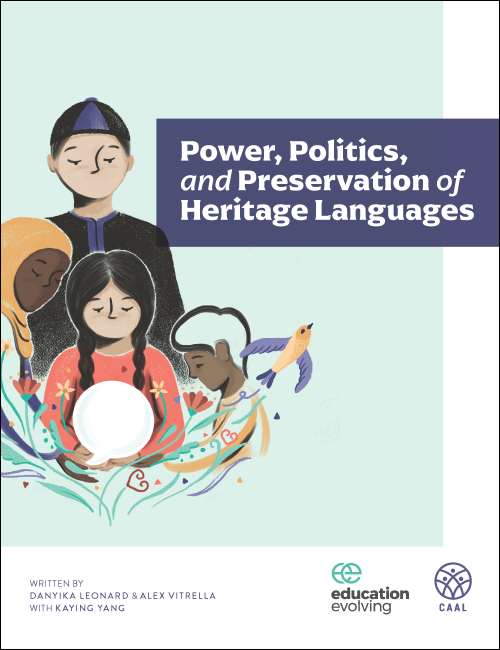
Report • June 2020 • By Danyika Leonard, Alex Vitrella, with KaYing Yang
In the United States, English is not the official language but the dominant one. But for many students, the dominance of English instruction has come at the expense of losing their first language.
For much of our history of schooling in the United States, students have been forced to leave their heritage or home languages at the door when they enter the school building—the belief being this was the best way for students to learn English. But research has clearly demonstrated the benefits of multilingualism.
As our understanding of the importance of heritage languages increases, so too must our efforts to bring heritage languages into schools in ways that honor and value their importance. In this paper, we explore why heritage language matters, the state and federal policies that support heritage language instruction, the learning programs leading this work, and the challenges heritage languages programs face.
As a companion to the paper, we have also created a series of Calls to Action to help you advocate for heritage language programs from your respective lens. The Calls to Action are for:
- Students
- Families & Community Leaders
- Teachers & School Administrators
- Schools & Districts
- Legislators
- Teacher Preparation Programs & Higher Education Institutions
- State Agencies (Minnesota Department of Education & PELSB)